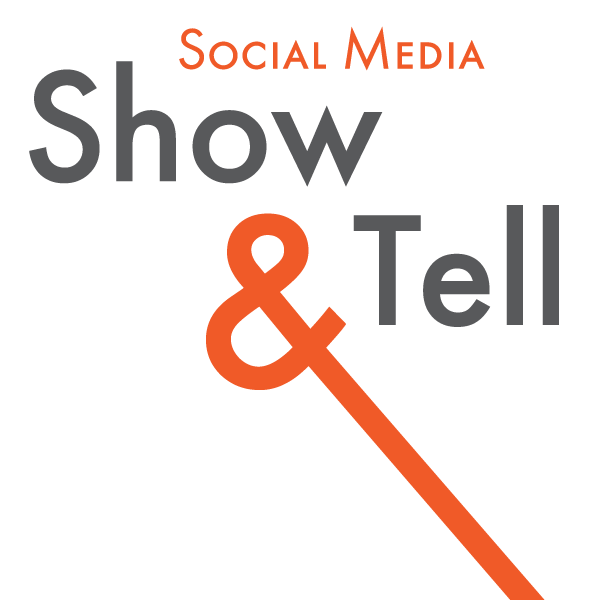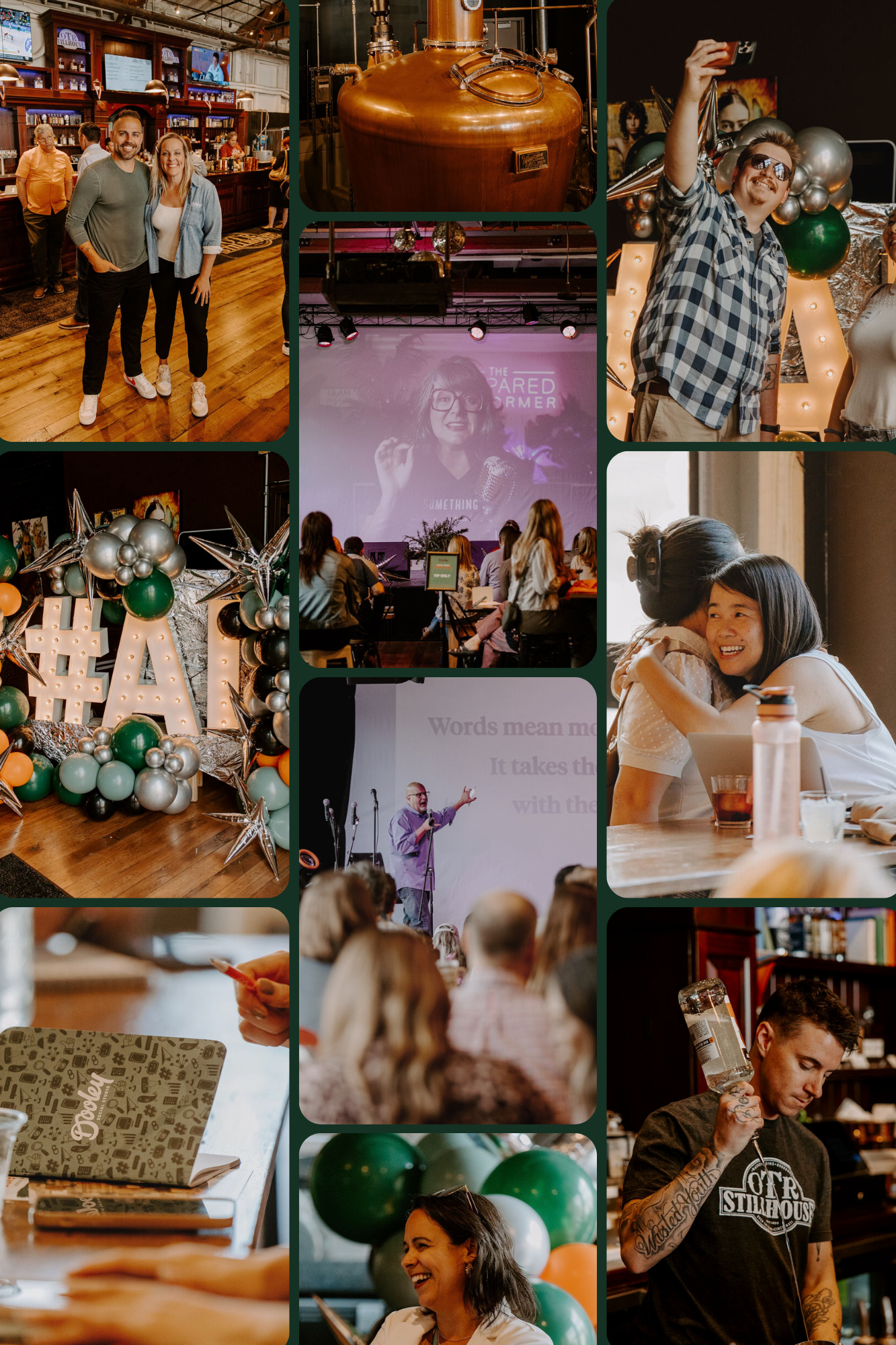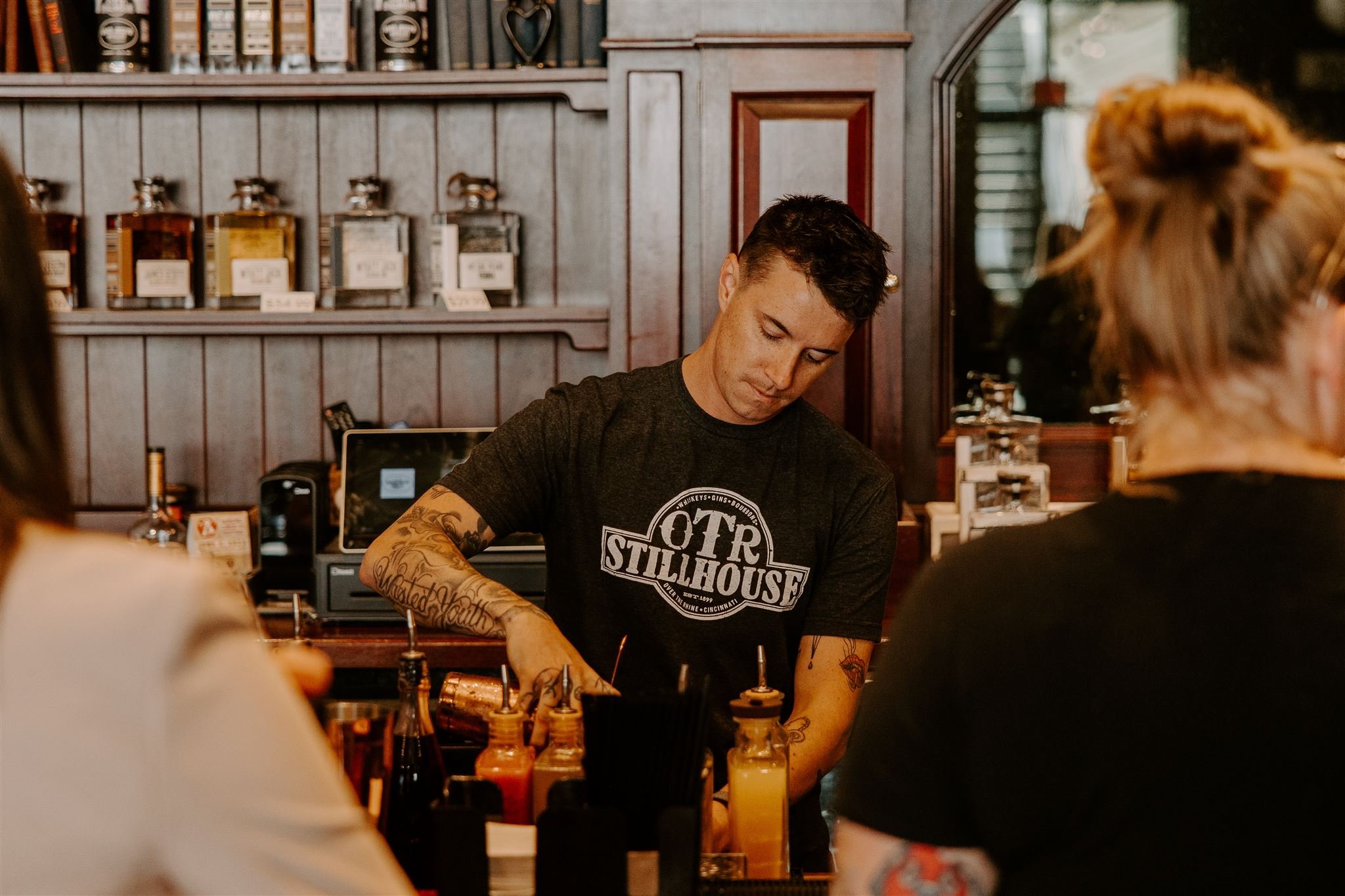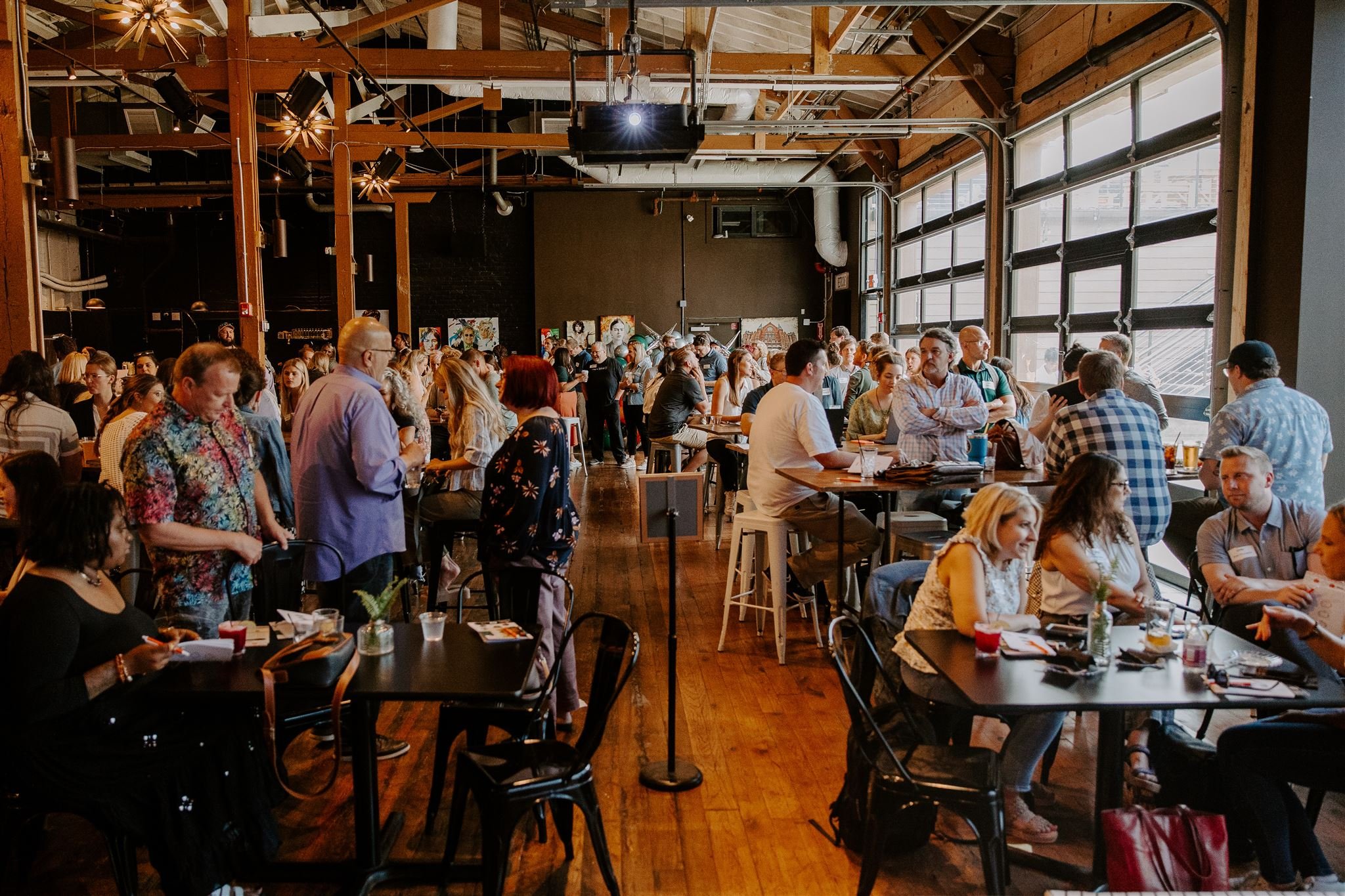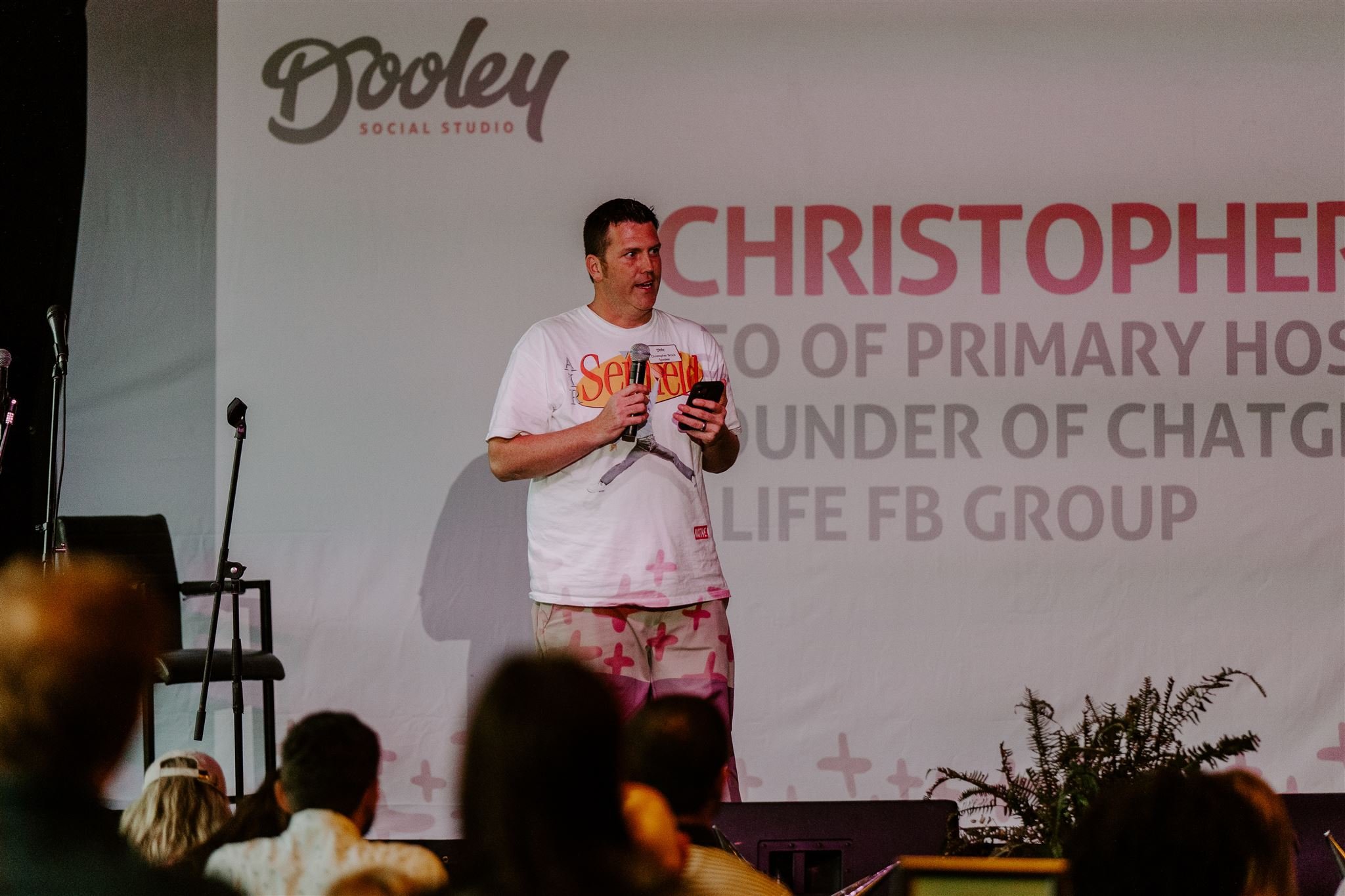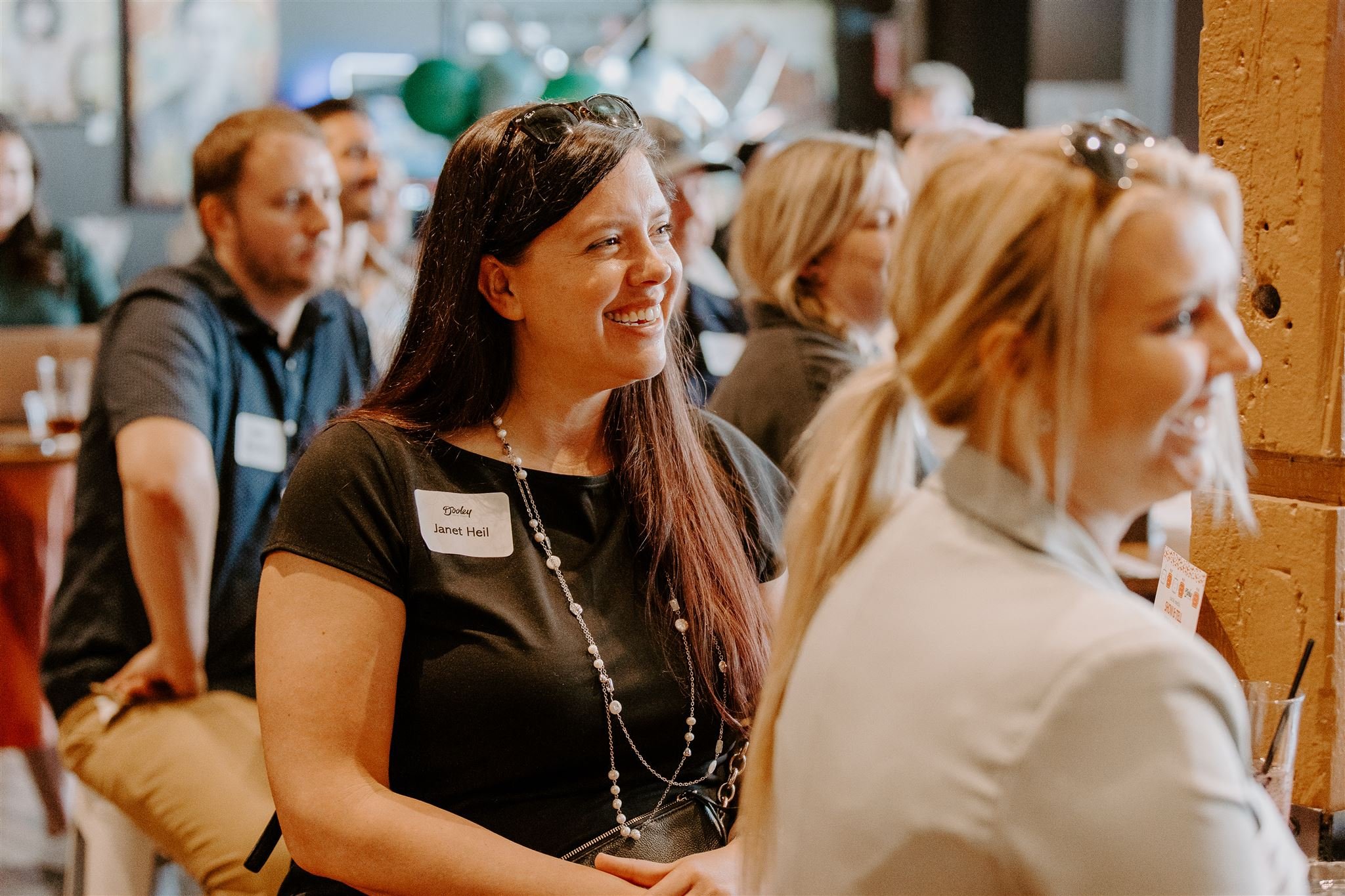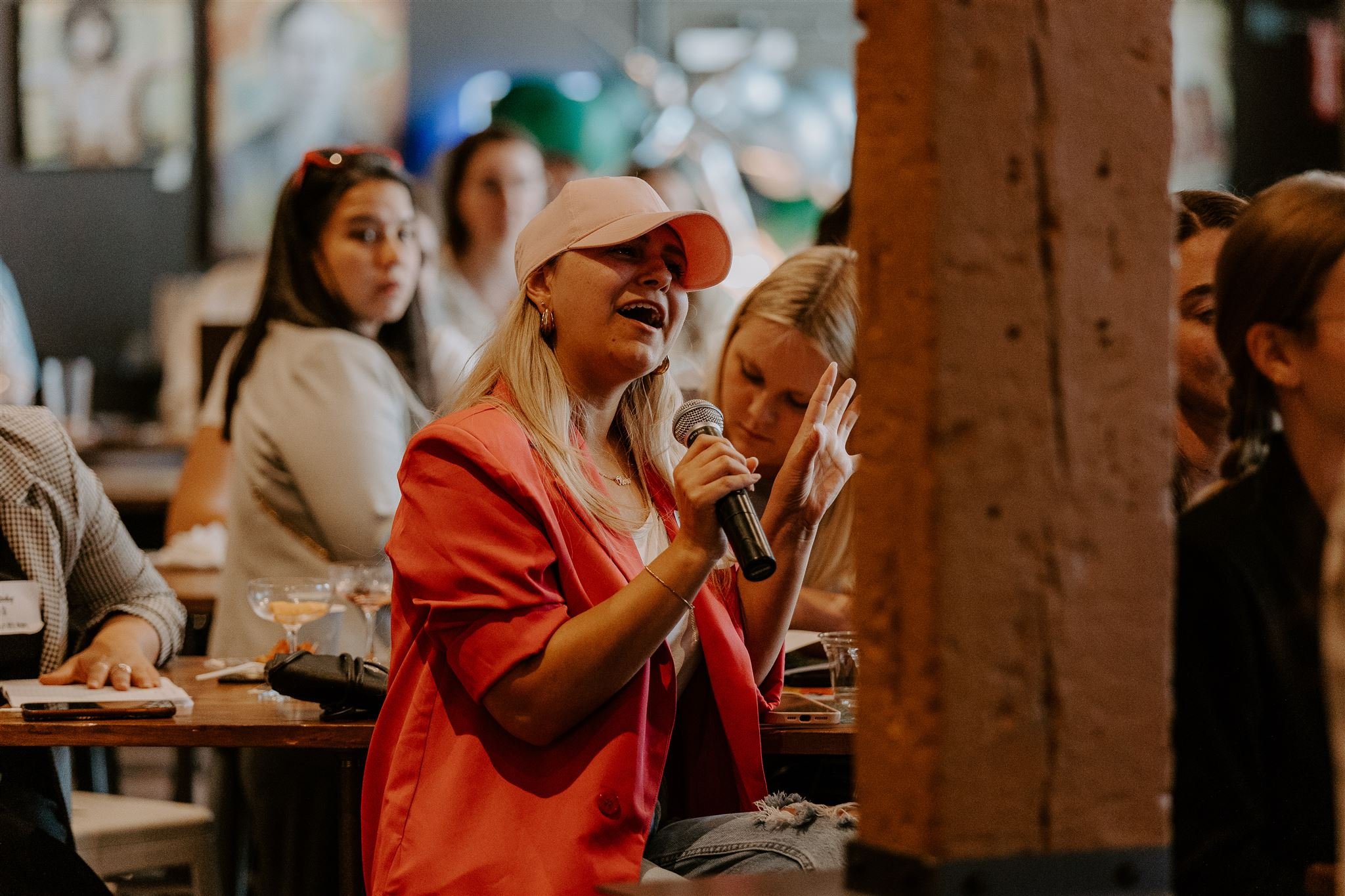May 2023 Recap
A crowd of over 150 marketing creatives joined us for our first Social Media Show & Tell event of 2023. We welcomed a top-notch lineup of speakers spanning the AI spectrum who covered everything from breaking down the basics to artistic photography, mastering an understanding of NLPs and LLMs–and much more. We had the pleasure of partnering with one of Downtown’s hidden gems to host our event, the OTR Stillhouse, which just happens to be the city’s only female-owned distillery/brewery!
Thanks to our sponsoring partner Mackey Advisors for their valuable support that allows Dooley to bring educational events like Show & Tell to our colleagues and community and of course to our good friends at Iron House Studios (the best videography crew in town!)
Check out the photos for a peek into the vibe and energy and tag yourself if you were there!
You can access all the speaker slides here, and we’ve given you a roundup of key takeaways from our featured speakers below.
+++PLUS+++
As a follow-up to our AI-focused Show & Tell event, we are psyched to invite you to our latest offering:
The exclusive AI Social Pros group on Facebook!
This group is the central hub for social media professionals seeking to understand, adopt, and leverage the power of AI in their work. We're here to learn, grow, and share insights about the impact of artificial intelligence on social media, and how to best use the latest AI tools to make our work faster, smarter, and more impactful.
NOTE: over the next couple of weeks, we're giving away premium memberships to ChatGPT, MidJourney, and other top AI tools. So, join now!
Cathy McPhillips of The Marketing AI Institute shared some practical tips for incorporating AI tools into your business practices.
AI-powered technology is smarter technology that can assist in numerous marketing tasks. Here’s how to take advantage:
Look for AI-powered versions of your existing tools
The overall goal is to allow AI tools to handle the repetitive tasks to save time and resources, freeing you up to do what you love, and for Cathy that’s being creative and building communities.
Examples of how she’s using AI tools in her daily work: podcast production, social media ideation, email marketing, content repurposing, and A/B testing subject lines.
AI tools can be categorized into three sections: language, vision, and prediction.
Language tools include transcription and generative AI for content creation.
Vision tools assist with image analysis and metadata generation.
Prediction tools help with data analysis, forecasting, and personalization.
Use problem-based and use case-based models to determine which AI tools to adopt.
Use cases based on data-driven insights, repetitive tasks, and the need for making predictions.
Identify fundamental business problems that need solving and evaluate the value and ability to automate specific tasks.
Learn to train the tools to improve their output by providing specific instructions and feedback.
By leveraging AI-powered tools, marketers can streamline their processes, save time, and focus on the activities that truly matter in their roles. These tools offer immense potential for enhancing marketing efforts and improving overall efficiency.
Teri Campbell's presentation on using AI as an artist and photographer shed light on the potential of AI as a powerful tool rather than a threat. Here are the key takeaways from his insightful talk:
AI as a Tool: AI is not meant to replace artists or photographers but rather serves as another tool in their creative toolbox. It can be used alongside existing tools like Photoshop to enhance and expand artistic capabilities.
Image Generation: Teri demonstrated how AI can generate images based on text descriptions. By inputting descriptive words into the software, he was able to create stunning images without the need for models, makeup artists, or elaborate sets.
Saving Time and Money: AI can help save time and money in various ways. It can create backgrounds, props, or entire scenes that would otherwise require significant resources and effort. This enables artists and photographers to focus on their creative vision without being limited by practical constraints.
Exploring New Ideas: AI can spark creativity by offering fresh perspectives and ideas that artists may not have considered. It can generate iterations and suggestions, opening up new possibilities and encouraging experimentation.
Enhancing Realism: While AI-generated images may have a distinct look initially, Teri explained how post-processing and combining AI elements with traditional photography techniques can create more realistic and polished results.
Customization and Adaptation: AI can be trained to understand specific subjects, objects, or styles, making it a valuable tool for customization. It can generate images with desired characteristics, colors, or themes, allowing artists to tailor their work to specific projects or campaigns.
Overcoming Limitations: AI can overcome practical limitations by creating virtual environments or objects that may be difficult, expensive, or time-consuming to produce in reality. This enables artists to realize their creative vision without being constrained by logistical constraints.
Teri’s presentation highlighted the transformative potential of AI for artists and photographers and by embracing AI as a tool, artists can expand their creative possibilities, save time and resources, and bring their artistic visions to life in new and exciting ways.
In her presentation, Sarah Sanders, co-founder of Native Ai, a brand that focuses a lot of their business support on CPGs (consumer packaged goods brands) discussed the impact of AI on customer experience. She emphasized the importance of focusing on the customer when creating content and highlighted the need for efficient and personalized approaches when utilizing AI tools.
Research and data aggregation are essential before using AI tools like ChatGPT to ensure accurate and relevant results.
NLP (natural language processing) is a subset of AI that focuses on the interaction between computers and humans through natural language.
Voice assistants like Alexa, search engines like Google, and Native Ai's platform are powered by NLP, enabling them to understand and process human language.
NLP tools, such as keyword extraction and sentiment analysis, provide valuable insights and make it easier for customers to navigate and make informed decisions.
NLP plays a crucial role in enhancing customer experience by enabling brands to better understand their customers' needs and preferences, leading to improved communication and decision-making.
In conclusion, Sarah highlighted the crucial role of NLP in enhancing customer experience by leveraging AI technology. By aggregating and analyzing data, NLP enables brands to better understand their customers' needs and preferences, leading to more effective communication and improved decision-making.
